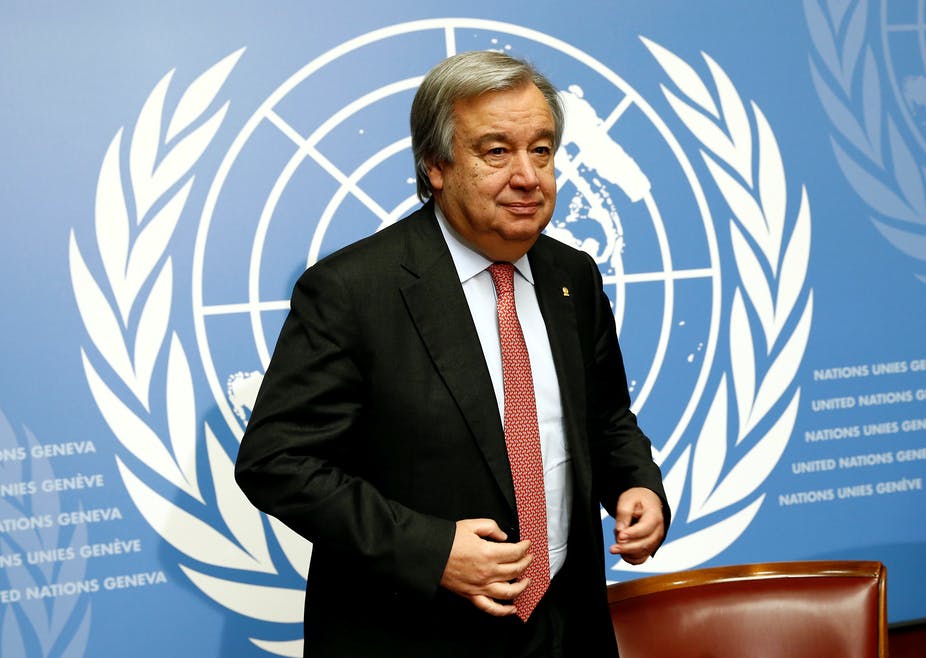By Chuks Oyema-Aziken, Glasgow
UN Secretary General, António Guterres has questioned some of the actions being made to tackle Climate Change, saying the world is still condemned to a calamitous 2.7 degree increase.
In a statement at COP26 World Leaders Summit, the Secretary-general said the six years since the Paris Climate Agreement have been the six hottest years on record.
He said “Our addiction to fossil fuels is pushing humanity to the brink. We face a stark choice: Either we stop it — or it stops us.
“Our planet is changing before our eyes — from the ocean depths to mountain tops; from melting glaciers to relentless extreme weather events.
“Sea-level rise is double the rate it was 30 years ago. Oceans are hotter than ever — and getting warmer faster.
“Parts of the Amazon Rainforest now emit more carbon than they absorb. Recent climate action announcements might give the impression that we are on track to turn things around.
“The last published report on Nationally Determined Contributions showed that they would still condemn the world to a calamitous 2.7 degree increase.
“And even if the recent pledges were clear and credible — and there are serious questions about some of them — we are still careening towards climate catastrophe.
“Even in the best-case scenario, temperatures will rise well above two degrees.
“So, as we open this much anticipated climate conference, we are still heading for climate disaster.
He however commended some of the efforts being made.
‘The Net-Zero Asset Owners Alliance — the gold standard for credible commitments and transparent targets — is managing $10 trillion in assets and catalyzing change across industries.
“The climate action army — led by young people — is unstoppable. They are larger. They are louder.And, I assure you, they are not going away.
“First, we must keep the goal of 1.5 degrees Celsius alive. This requires greater ambition on mitigation and immediate concrete action to reduce global emissions by 45 per cent by 2030.
“G20 countries have a particular responsibility as they represent around 80 per cent of emissions.
“According to the principle of common but differentiated responsibilities in light of national circumstances, developed countries must lead the effort.
“But emerging economies, too, must go the extra mile, as their contribution is essential for the effective reduction of emissions.
“We need maximum ambition – from all countries on all fronts – to make Glasgow a success.
He urged developed countries and emerging economies to build coalitions to create the financial and technological conditions to accelerate the decarbonization of the economy as well as the phase out of coal.
“These coalitions are meant to support the large emitters that face more difficulties in the transition from grey to green for them to be able to do it.
“Let’s have no illusions: if commitments fall short by the end of this COP, countries must revisit their national climate plans and policies.”



